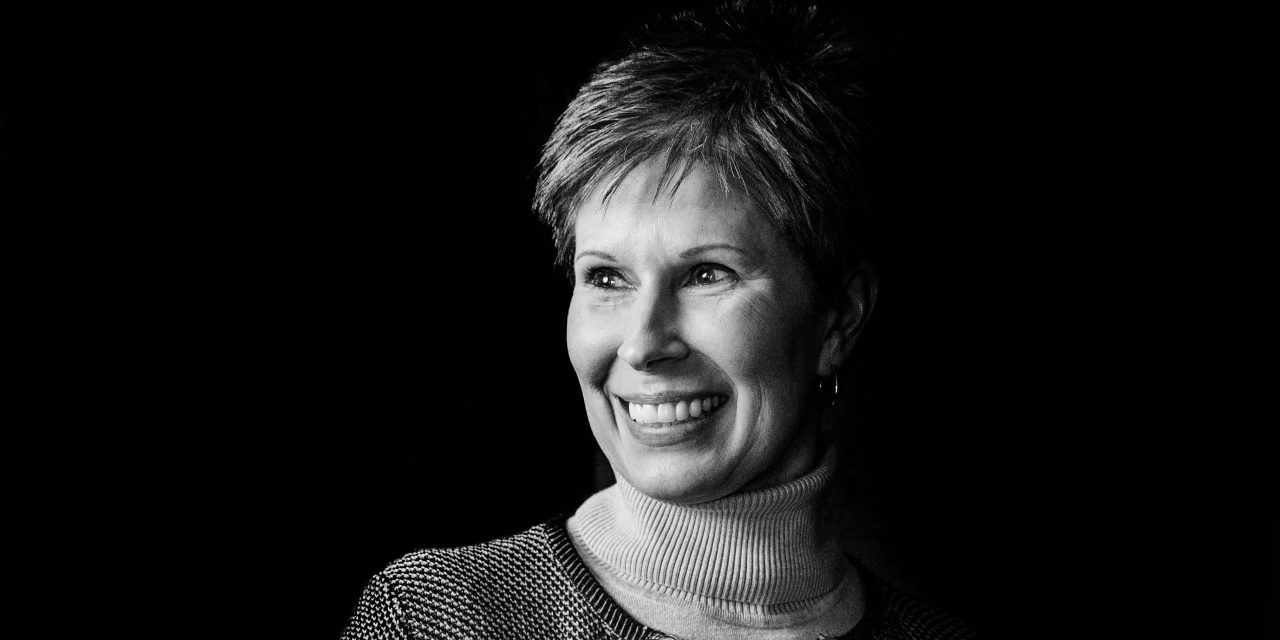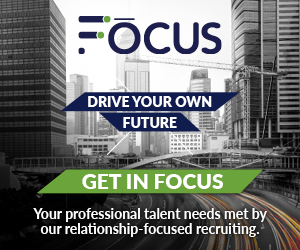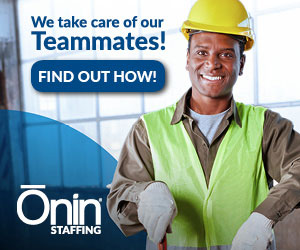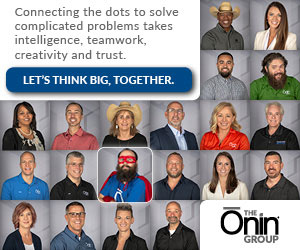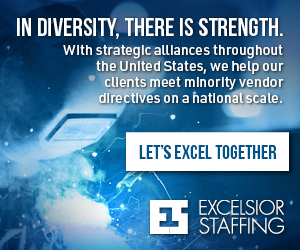Lynn Lane has seen it all. Her breadth of knowledge and life experience as a human resource leader spans almost three decades and several countries. She’s someone who isn’t afraid to build something from scratch or start anew. As many of us seek new beginnings in the wake of the COVID-19 pandemic, Lynn’s leadership wisdom is especially timely.
Lynn is currently the Alabama Automotive Manufacturers Association (AAMA) vice president of Workforce Development, where she helps develop students for the workforce in North Alabama while also working with the AAMA on automotive career initiatives. She is helping to build new beginnings for students, employers and communities.
Talking to Lynn, you are immediately struck by her wisdom and poise. We are all trying to create new beginnings for ourselves, our companies, and our communities. We may not do everything perfectly, but Lynn shows us we have the tools to build something new, no matter where or who we are.
This is Take 5.
Shane: We’ll just kick right off. What has been your greatest accomplishment professionally up to this point in your career?
Lynn: For me, it’s having had the opportunity to be part of four plant startups, one of which was in another country. I’ve been lucky to be involved in ground-up startups, actually building manufacturing operations completely from scratch. In a startup scenario, you have the ability to truly work with the team to create the culture of the company and hire every single person to make up that team. Working with plant startups really encompasses the majority of the last 18 years of my career.
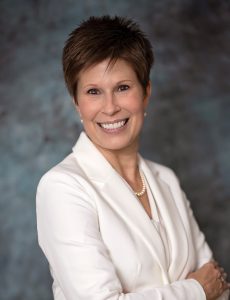
Lynn Lane
My first startup plant was in Athens, Ala., back in 2002 in the packaging industry. In essence, the plant produced corrugated sheets.
The second startup was not a ground-up scenario but the purchase of an empty facility with a French-owned company, EFI Automotive. We were trying to get an operation up and going in Elkmont, Ala., which is a small town very close to the Tennessee-Alabama state line. The unique challenge in that scenario was the leadership of the facility was still in France. There were just a few of us at the very beginning trying to turn an empty building into a production operation while the company leaders were still overseas.
The third opportunity was in Guadalajara, Mexico. It was with the same French-owned company, EFI Automotive. The company had sites all over the world, and the opportunity came up to be part of its North American team that would start a ground-up building in Guadalajara. I got to be part of that and was able to see everything come out of the ground and be a part of hiring and training the team, both there and at our site in Elkmont.
Then, of course, Mazda Toyota Manufacturing was the latest startup facility I worked with. With Mazda Toyota, I was there through the initial phases. I was fortunate to be the very first person that they hired from outside of either Mazda or Toyota. As the first outsider to join the company, I was tasked with creating the framework of the HR organization. You would think, and I even thought going in, that the HR framework would be a cookie-cutter scenario built on pre-existing structures. After all, Mazda and Toyota were two big companies with solidified structures coming together. But, we actually had to create the HR framework from scratch. The real situation I walked into was a temporary office with about a dozen people and the equivalent of folding tables and chairs set up. There was no WiFi and no printers. This was the start of what will become a 4,000 employee, $2 billion automotive OEM powerhouse. We truly had to create all of our procedures, our HR infrastructure, our hiring processes, and our website from the ground up. I would like to reiterate, “we.” Even though there were only a few of us on board at the time, we truly worked as a team and in a very collaborative way in everything we did.
Shane: How do you even begin to create a culture in a situation where you may not fully understand the corporate culture that’s already there yet? How does a company culture take shape, and how do you approach that when you’re building something new?
Lynn: One of the things that we needed to do at Mazda Toyota before we could go to market was tell people who we were. We needed to communicate what we represented as Mazda Toyota. We knew this, so that started the conversation about culture very early on in the startup process. We looked closely at both parent companies because both Mazda and Toyota are two very large, old and established companies that have very strong cultures individually. It was kind of like we were the symbolic offspring of two parents, so we had to ask, “What are the best features from those parent companies?” Ultimately, we had to look at what elements were important to both companies.
We also looked at a lot of keywords that kept popping up, notably: collaborate, relate, motivate, appreciate and innovate. We used the word collaborate a lot. Collaboration is almost a given desire because Mazda Toyota was the result of a collaboration. We also used the word relate. We wanted the Mazda Toyota culture to be able to relate to people and for people to relate to us at all levels of the company. Appreciate was a big term because we wanted to make sure we were showing our team members appreciation for everything that they did. Innovate was another one that we came up with. We wanted to be able to use language that prompted innovation in our daily speak at work so that conversation starters like, “I would really like your ideas on what you think we could do differently,” would become commonplace. The motivate concept is something that needs to come from within. We wanted people to be motivated to work for Mazda Toyota because they were proud to be part of the company, and they viewed their work as purposeful and their contributions as valued.
Again, the culture creation process started with just some keywords, and then we started building out and asking: what does that really mean to us at Mazda Toyota? How can we take that terminology and create a few phrases, a few sentences that are going to be really impactful and that we can use not only to recruit, but also in our daily lives at Mazda Toyota Manufacturing?
Shane: Tell me a bit about the difference between jumping into a new startup company and jumping into an established company? What are the major differences leaders should keep in mind when they’re facing these two very different situations?
Lynn: The big difference when you’re in a startup scenario is the importance of getting it right on the front end. Getting things right is just crucial. Retroactively determining the culture that you created and established is not the right fit can be disastrous.
At that point, it’s like turning the Titanic away from the iceberg.
In the case of a new company, it’s also important to make sure that you’re sticking to what you said you wanted the culture to be in the initial creation stages. Don’t waiver from that vision. If the culture elements were important enough for you to put down on paper and you felt strongly enough about them on the front end of the project, stay the course, even through difficult times. With startups, the timelines you are contending with are crazy, and stress levels sometimes are high. There is a tendency to not stay true to one’s values or the culture that you originally maybe wanted in that kind of hectic environment. Those original culture intentions just have to be ingrained. Ultimately, culture must be something you have to feel when you walk in the door.
I’ll give you two examples. A company that I worked for very early on in my career was one of the oldest privately-held companies in the country. It was a very large company in the packaging industry for a wide variety of different products. But the minute you walked through the doors of their corporate office or went out to any of their 70-plus manufacturing plants, you knew immediately who they were and what they were about. The company had an identity. The people who worked for the company also had a unique identity. Likewise, I get that strong feeling when I walk in the doors of The Ōnin Group’s office. You know exactly what the Ōnin leadership stands for. You know exactly what the culture is at The Ōnin Group. You see it. You hear it in all the people that you meet along the way. It’s just there. It’s living. It’s real.
I’ve worked for another company that didn’t have that strong culture, and it was an international company. You can imagine the difficulty of building a company in a new country when the original company doesn’t have its own identity. Now, you’re spreading out to other locations worldwide. You don’t have any semblance of identity anymore. At the end of the day, you end up with just these pockets of other companies that only share the same company name and little else.
Shane: What would you say is your favorite failure, one that taught you an important lesson or put your life on a new trajectory?
Lynn: It was maybe more of a wake-up call than a flat-out failure, but I was losing myself in my work. I’ve been in the industry for 30 years. I was one of those people who was always working to achieve or climb the ladder and get to that next best thing. During the course of that, I realized, after a tragedy in my family, that I had lost myself somewhere along the lines. I achieved much career-wise, and I had made some good moves financially. I had success in many respects, but in the wake of that event, it caused me to do a lot of reflection. In that reflection, I looked back and determined what I could do differently going forward to not lose myself again. Ultimately, that reflection was part of the reason I made the decision to leave Mazda Toyota.
There were tremendous lessons learned at the end of the day. The people in your life, whether they be friends or family, are where your priorities should be. This goes back to the importance of culture at work. For a professional, it’s a matter of finding a work culture that supports that sort of balance in one’s life so that you can have those successes and wins in your career, but at the same time, maintain those successes and wins on the home front as well.
Shane: What are some warning signs that you’ve lost track of that right work-life balance mentally? In retrospect, what were the red flags?
Lynn: I think the red flags were the number of times that I had a call coming in from a friend or family member, and I said to myself, “Can’t take that right now. Can’t pick it up. I’m working.” Even when it was at night or on the weekend, I found myself in that same mode, “I’m in work mode. I’m not going to take that call.”
Ultimately, there comes a time where you can’t take that call because that person’s gone. One of the things that I would encourage even younger people to do is just keep their balance. That’s so important.
I think that a lot of people have had to confront their priorities recently in the world with COVID. All of a sudden, professionals are working from home, and their jobs aren’t quite what they used to be. A lot of people are catching themselves saying, “Huh? I’ve got a family. I’ve got people in my world.” I think there are a lot of people that have rediscovered a different way of life that they might have lost sight of before.
Retaining one’s sense of balance ultimately comes down to scheduling. It’s about making sure that if there is something that’s important to you, for instance going to the gym, you put it on your calendar and make sure it happens. Make your dates, whether it’s with a loved one or a friend. Put it on your calendar, and make sure it happens.
It’s very easy, especially in a busy work environment, to lose track of your meaningful personal needs. You’re getting those calls, “Hey, we’re trying to schedule a meeting. Do you have just a little bit of time?” If you don’t stay firm about your personal commitments, all of a sudden, you’ll find yourself shoving your personal priorities and the things that are important to you aside to add that one extra little work thing on your calendar. Before long, work might become your life, and those other meaningful aspects of life are gone.
As I mentioned, I loved Mazda Toyota, but after a family tragedy, it got to the point where I went, “Something’s going to break.” I went to speak with my boss, who was absolutely wonderful. I just said, “I feel I need to step away from this amazing opportunity. Something’s going to break, and I don’t want that to be me. This is why I’m making this decision.” After 30 years of being in the industry, leaving was a huge leap for me, but it also led me down a path of just self-discovery and figuring out who Lynn Lane used to be and getting her back.
To keep myself accountable in my new role, I do an activities report, and I literally put “staying true to personal goals” on that report. Sometimes I’ll give myself a “needs improvement” mark, but I’m really trying.
Shane: What is one piece of advice you would give your 25-year old self?
Lynn: There are a few phrases that come to mind: “With age comes wisdom,” “This too shall pass,” and “Face the wind.”
These sayings are especially relevant when you’re younger, and especially if you’re goal-oriented and you want to achieve and have success. You’re going to be faced with many challenges, some of which will seem insurmountable. It’s all about reflecting and understanding that those are small things. What seems like a mountain at the time, isn’t. You learn, achieve and look back, even if there are failures along the way. Don’t sweat the small stuff. Take things in stride.
Another thing to think about as a young professional is who is in your network and who is on your team. When something comes up, look at your network and your go-to people and lean on them. There’s no shame in saying, “Hey, I’m struggling with this. Can you help?” Most people are glad to help, and if they’re not, then they don’t need to be in your network. Choose your team wisely.
Shane: Did you have people in your life who you could lean on when you were starting out in your profession, or were you a lone wolf out there figuring it out? How did that work out for you?
Lynn: I was kind of winging it. The very first job I had, for example, I was tasked with starting up an HR department. I didn’t even know what the heck HR really meant at the time. I didn’t have anyone to go to because nobody knew what to do either. A lot of my early career was spent just learning on my own, digging in, and doing research. Along the way, I’ve had some wonderful mentors in my life, both work-related and also on the personal side. Some of them have been tough on me and metaphorically gave me a “Wake up. What are you thinking?” shoulder shake. But, I’ve learned. Mentors who are willing to be honest with you can be the best ones even if the advice is not something you want to hear. You can either take it and do something with it or continue on your path of not knowing what to do.
Shane: If somebody was just starting their HR career tomorrow or someone was looking at HR as a potential career path, what would you say they need in order to really be successful in HR?
Lynn: For a young person, it’s important to get real-world experience. Take that internship, get involved, and get in the workplace. You’ve got this whole framework of your textbook knowledge that’s going to fall apart the minute you get into a real work environment or deal with real people. You need to be able to understand how what you are learning in school applies in a real-world work environment. I think a lot of the curriculum in school and HR programs is from a strategic standpoint and about HR strategy development. Those things are all great, but when it comes down to dealing with people and working through the many different real-world situations that are going to be presenting themselves each and every day or each and every week, that’s where you need that boots on the ground experience.
Also, it’s important to work with different HR networks that are out there. For example, in my area, there’s North Alabama SHRM (Society of HR Management), TVC SHRM, and the Decatur Personnel Officers Association. Networking and getting involved in those groups is going to help a young person. The network involved in those groups might be people that are five years into their career or people who are 40 years into the career. You’re learning from that huge wealth of knowledge and experiences.
Shane: In HR, there will always be a level of human messiness. Being in HR is almost like being a professional ambulance driver at times. Is there a certain level of compartmentalization that has to happen when you hear pretty difficult things from people on a regular basis? How do you balance that?
Lynn: It’s about keeping things in perspective. You are dealing with the whole person. The whole person goes to work every day, meaning that whatever’s gone on in their world and whatever might be affecting them outside of the work environment, follows them to work. Sometimes people are dealing with family situations, tragedies or their health.
One thing that has served me well is simply the power of just listening, sitting down, and being the ear that individual needs. You can’t solve everyone’s problems for them, but you can give them some tools or takeaways that will help them be able to either resolve issues on their own or find resources that they might not have been aware of.
Shane: You’re probably the most qualified person I’ve ever talked to in terms of answering this next question because you just went through this to some degree. If you were hiring a replacement, what are the must-haves you would look for in an HR director or manager?
Lynn: First and foremost, integrity. That’s critical. Also, humility. Much of my career has been about people coming to talk with me or going out to the plant floor and talking with people. You have to be approachable. Being humble and friendly are must-haves. Gratitude is also important. Make sure that you’re thanking the people who have helped you along the way and are thanking your team and recognizing that it’s not about you, it’s about the whole team.
You must have the perseverance to climb the hills and to meet the challenges. Another important thing is to just have a sense of humor. Don’t take things too seriously. There’s a time to be serious. There’s also a time to have a laugh and enjoy the camaraderie that comes with working together as a team. Those things are important. You can be textbook smart, but there’s a whole lot of street smarts that have to come along with HR and when you’re working with people because everyone’s unique. You can’t pick up those skills in a book.
Shane: HR has changed a lot over the last 10 years. How do you think your field will change over the next 10 years? What do you see on the horizon as somebody who’s probably seen quite a bit of change already?
Lynn: Technology is changing a lot of the HR administrative pieces. HR administration is becoming more of an employee self-service function. There are different sign-ins, log-ins and sites you go to for this, that or the other thing. Whether it’s the onboarding process, benefits, annual enrollment, or your PAYE, everything is automated. Technology has taken over.
HR is becoming more of a strategic business partner and increasingly having a seat at the table making business decisions. People, regardless of the industry, are considered the greatest asset a company has. Now, as a result, it’s almost the expectation that HR is part of the management of the company. HR is at the helm of making sure a company’s culture is right and making sure the right people are recruited to fit into that culture.
HR is also increasingly tasked with helping the organization develop its leaders through coaching. HR is helping leaders at all levels of the organization understand the importance of coaching moments and get away from that traditional mentality of, “We’re now going to do your annual review. We’ve forgotten the last 11 months of what you’ve done, so we’re just going to focus on the near term.”
Those things are starting to fade away. Now, it’s about determining how you will facilitate an ongoing performance dialogue. Organizations can do that through coaching. The power of coaching is that it has a trickle-down effect in organizations. If someone has a good coach they’ve learned from, that person will now coach their people as well. All of a sudden, those newly coached people are starting to coach their own team members. Effective coaching creates a workforce that is empowered and self-sufficient. It allows you to create a group of problem solvers. All of those elements contribute to a positive company culture.
Shane: Obviously, you are spearheading some incredible efforts and seeing some great things happen in your role as vice president of Workforce Development at AAMA. What is the big future of workforce development?
Lynn: The workforce development effort is important because, number one, the economy is actually booming, especially here in North Alabama. Deloitte did a study in 2019, and they estimated that we needed 50,000 employees entering our work environment here in North Alabama. There aren’t 50,000 people who are going to be relocating here. That makes the need for the workforce development piece critical, especially with young people. Our high school students are a new pipeline of fresh talent.
Whether it’s students coming from high school or coming out of our colleges, companies and community leaders need to expand programs that are available to young people so that those students have a better understanding of the real world and what’s available to them.
Young people, especially at the high school level, don’t know what they don’t know. They might drive past a company each and every day and have no clue what goes on inside. Those students might have no idea what it takes to even go to work for one of those companies or what they produce, or the different career pathways. Getting the employers in front of students and sharing information about opportunities is just critical. The automotive industry, in particular, is driving a tremendous amount of growth, and there are a multitude of career pathways available for all educational and experience levels. Awareness is key.
We did a deep dive here in North Alabama, where we looked at the number of high school students who have no career pathway identified for their future. After they graduate, those students are not going to a two-year community college, and they’re not going on to a four-year college. Where are they going? Most of them are going to end up in a low-paying job, or they’re going to end up unemployed. They’re falling through the cracks.
There’s a graphic I’ve seen Ōnin use that illustrates high school students running up the stage to the graduation platform. It shows the students getting a diploma and then falling right off the stage into unemployment. That scenario is real.
There was a report that came out from AlabamaWorks just within the last couple of weeks that looked at the North Alabama region. The report estimated there are 14,000 16- to-24-year-olds who are not in school and they’re not at work. They’re lost young people. We have to ask, where are they? Why did that happen? We’re working hard to remedy that and hopefully get these young people on career pathways that will help them be successful and to change lives.
Shane: There’s such an emphasis on diversity right now. How is Ready-to-Work and workforce development addressing diversity?
Lynn: Diversity is a focal point of ours, especially when we’re looking at industry-based careers. In automotive or other manufacturing environments, it is often hard for young women to see themselves working in those environments. We’re trying to change that. We’re partnering with organizations like Women in Manufacturing. They have a group that does a GLAM camp. GLAM stands for Girls Learning About Manufacturing.
We’re trying to engage young women early on and let them know about manufacturing and other STEM-based career opportunities and empower them to pursue what might’ve been considered more male-dominant careers in the past.
As far as outreach to people of color, or people from other cultures, those are also areas of focus for us. North Alabama has a diverse set of different demographics. Getting those from minority groups to engage and understand these career pathways are available to them is essential. We are doing a lot of outreach. We’ll continue to do more outreach. For example, I’ve recently got Athens State University working with the community college system and working with the high schools. Everyone is coming together to really look at how they can expand outreach in our communities. We know it’s important to get the word out to our underserved communities, in particular, and pull people in from different areas.
Diversity has always been a focal point of mine because I worked for a multinational organization for many years. Literally, we had people from all different countries working in our environment, which became a melting pot. You learn so much from just listening and understanding each other and understanding other’s experiences. It’s an amazing thing.

Shane Minor
oningroup.com
Shane joined The Ōnin Group in 2016 to lead the newly formed Branding Team and communicate the culture of Ōnin to the world. Prior to Ōnin, Shane spent 16 years in creative, sales and marketing leadership positions for several organizations in the medical, tourism, economic development and outdoors industries.

